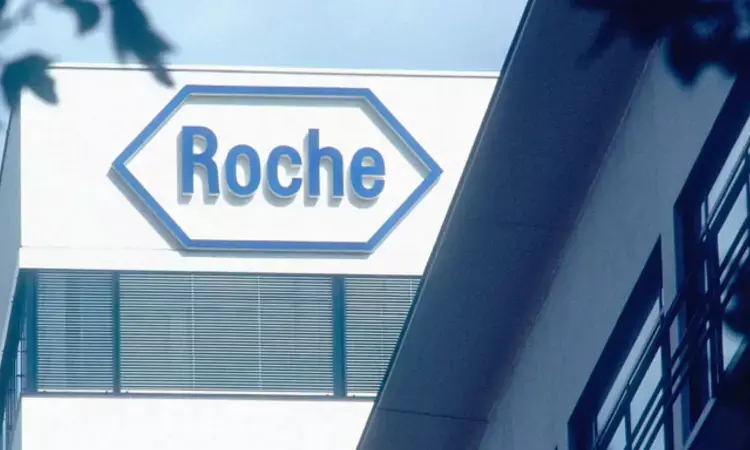- Home
- Medical news & Guidelines
- Anesthesiology
- Cardiology and CTVS
- Critical Care
- Dentistry
- Dermatology
- Diabetes and Endocrinology
- ENT
- Gastroenterology
- Medicine
- Nephrology
- Neurology
- Obstretics-Gynaecology
- Oncology
- Ophthalmology
- Orthopaedics
- Pediatrics-Neonatology
- Psychiatry
- Pulmonology
- Radiology
- Surgery
- Urology
- Laboratory Medicine
- Diet
- Nursing
- Paramedical
- Physiotherapy
- Health news
- Fact Check
- Bone Health Fact Check
- Brain Health Fact Check
- Cancer Related Fact Check
- Child Care Fact Check
- Dental and oral health fact check
- Diabetes and metabolic health fact check
- Diet and Nutrition Fact Check
- Eye and ENT Care Fact Check
- Fitness fact check
- Gut health fact check
- Heart health fact check
- Kidney health fact check
- Medical education fact check
- Men's health fact check
- Respiratory fact check
- Skin and hair care fact check
- Vaccine and Immunization fact check
- Women's health fact check
- AYUSH
- State News
- Andaman and Nicobar Islands
- Andhra Pradesh
- Arunachal Pradesh
- Assam
- Bihar
- Chandigarh
- Chattisgarh
- Dadra and Nagar Haveli
- Daman and Diu
- Delhi
- Goa
- Gujarat
- Haryana
- Himachal Pradesh
- Jammu & Kashmir
- Jharkhand
- Karnataka
- Kerala
- Ladakh
- Lakshadweep
- Madhya Pradesh
- Maharashtra
- Manipur
- Meghalaya
- Mizoram
- Nagaland
- Odisha
- Puducherry
- Punjab
- Rajasthan
- Sikkim
- Tamil Nadu
- Telangana
- Tripura
- Uttar Pradesh
- Uttrakhand
- West Bengal
- Medical Education
- Industry
Phase III data for Gazyva/Gazyvaro show significant reduction in disease activity for systemic lupus erythematosus: Roche

Basel: Roche has announced statistically significant and clinically meaningful results from the phase III ALLEGORY study of Gazyva/Gazyvaro (obinutuzumab) in adults with systemic lupus erythematosus (SLE) on standard therapy.
The study met its primary endpoint showing a higher percentage of people achieved a minimum four-point improvement in SLE Responder Index 4 (SRI-4) at one year (52 weeks) with Gazyva/Gazyvaro versus standard therapy. SRI is a tool that assesses changes in disease severity, symptoms and physical condition to indicate whether treatment is effective at controlling disease activity. All key secondary endpoints were also met. No new safety signals were identified, and safety was in line with the well-characterised profile of Gazyva/Gazyvaro.
“Systemic lupus erythematosus is a lifelong condition that can cause irreversible damage to the major organs in the body, leading to life-threatening complications. These pivotal results are unprecedented in demonstrating that by effectively controlling disease activity, Gazyva/Gazyvaro may delay or prevent further organ damage in people with SLE,” said Levi Garraway, MD, PhD, Roche’s Chief Medical Officer and Head of Global Product Development. “We look forward to sharing the data with global health authorities, with the goal of making this potentially transformative new standard of care available as quickly as possible.”
All key secondary endpoints were met, with results showing statistically significant and clinically meaningful benefits with Gazyva/Gazyvaro versus standard therapy including British Isles Lupus Assessment Group based Composite Lupus Assessment (BICLA) response at week 52, sustained corticosteroid control from week 40 to 52, sustained SRI-4 from week 40 to 52, a six-point improvement in SLE disease activity score (SRI-6) at 52 weeks, and time to first flare over 52 weeks as defined by the British Isles Lupus Assessment Group (BILAG) index.
SLE affects over three million people worldwide, mostly women diagnosed between the ages of 15 and 45, with women of colour disproportionately impacted. Frequent flares of disease activity inflame and damage multiple organs. Around half of the patients will progress to lupus nephritis, a potentially life-threatening kidney complication, within five years of diagnosis. Achieving better disease control can reduce flares, limit further damage to the organs and lower the risk of developing lupus nephritis.
Data will be presented at an upcoming medical meeting and shared with health authorities as soon as possible, including the US Food and Drug Administration and the European Medicines Agency.
ALLEGORY is the third positive phase III study for Gazyva/Gazyvaro in immune-mediated diseases, in addition to REGENCY in lupus nephritis and INShore in idiopathic nephrotic syndrome. This growing evidence suggests that Gazyva/Gazyvaro, designed to attack and destroy targeted B cells, both directly and together with the body's immune system, may help address disease activity across a spectrum of autoimmune or immune-related diseases.
In addition to SLE, Gazyva/Gazyvaro is being investigated in children and adolescents with lupus nephritis, as well as adults with membranous nephropathy.
Ruchika Sharma joined Medical Dialogue as an Correspondent for the Business Section in 2019. She covers all the updates in the Pharmaceutical field, Policy, Insurance, Business Healthcare, Medical News, Health News, Pharma News, Healthcare and Investment. She has completed her B.Com from Delhi University and then pursued postgraduation in M.Com. She can be contacted at editorial@medicaldialogues.in Contact no. 011-43720751
Dr Kamal Kant Kohli-MBBS, DTCD- a chest specialist with more than 30 years of practice and a flair for writing clinical articles, Dr Kamal Kant Kohli joined Medical Dialogues as a Chief Editor of Medical News. Besides writing articles, as an editor, he proofreads and verifies all the medical content published on Medical Dialogues including those coming from journals, studies,medical conferences,guidelines etc. Email: drkohli@medicaldialogues.in. Contact no. 011-43720751


